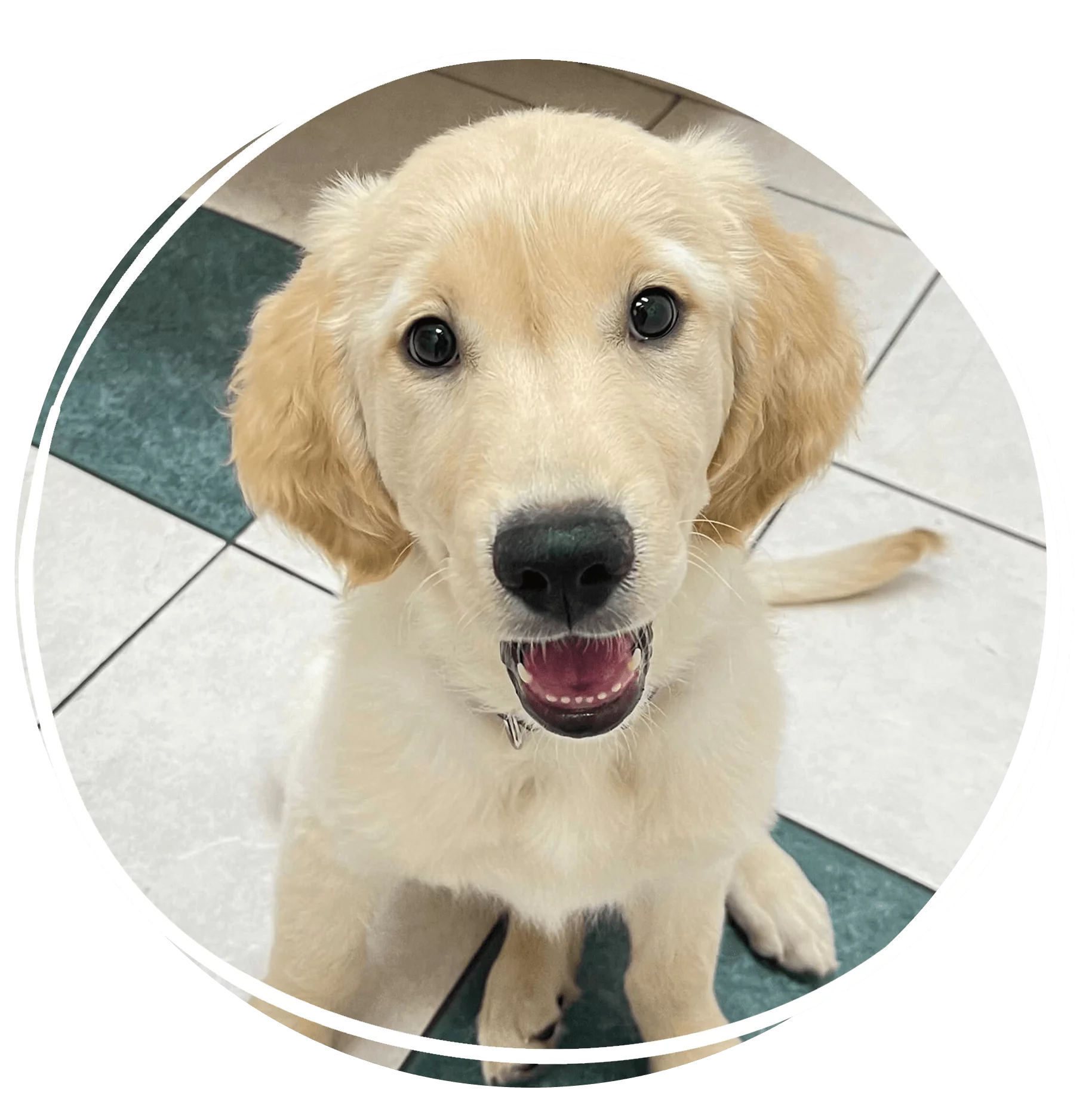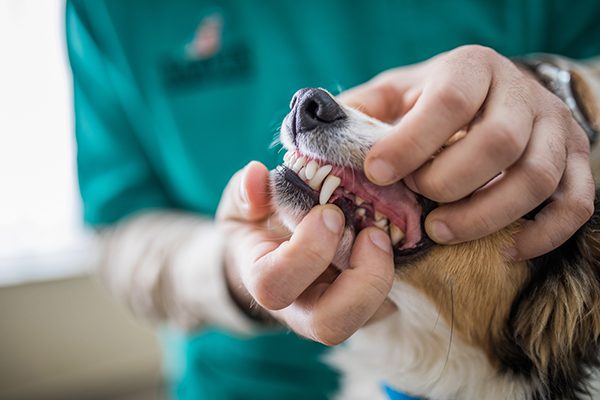
Our Veterinary Blog
The Benefits and Importance of Dental Care for Cats and Dogs
February marks National Pet Dental Health Month, and our very own Dr. Rachel Pratt has some important topics to discuss regarding your pet’s dental health. Read on to learn more about the importance of proper cat and dog dental care!

Why is proper dental care so important for cats and dogs? They aren’t smiling for the camera or taking Glamor Shots, right? So, what’s the big deal?
I try to spend time talking to each pet parent about the importance of proper dental care at least once yearly because it really is important. Pets can’t brush their teeth, and many of them won’t let their owners do it either.
As a pet parent myself, I can truthfully say that I don’t brush my dog’s teeth nearly enough. Other things are just higher on the list of things to do each night. However, without proper routine dental care, bacteria from your pet’s mouth can affect their heart, liver, and kidneys.
This can decrease the time they get to spend with you, and our pets already don’t get to live as long as we do. It’s so important to have routine dental care performed at home with nightly brushing, and/or with a yearly dental cleaning.
My pet is still eating. He doesn’t seem to be in any pain and I can handle his bad breath. Why can’t I just let his teeth fall out naturally?
According to the American Veterinary Dental Society, over 80% of dogs and cats have signs of dental disease by three years of age. While it seems like it is just a cosmetic issue, dental disease is painful!
Inflammation from gingivitis, and fractured or loose teeth are the biggest sources of pain in our pets. By the time signs of significant dental disease appear, your pet could be in significant chronic pain, but our pets instinctively tend to hide the pain and not show weakness to predators.
If you have ever had tooth pain, you can understand what they might be going through! The only effective treatment for dental pain is to treat the underlying dental disease with a dental cleaning and extractions, if necessary.
But dental cleanings require anesthesia right? Isn’t that a big risk?
I can totally understand why it might be scary to consider putting a pet under anesthesia for something as simple as a dental cleaning. We have to remember that pets don’t just open their mouths and say, “ahh.”
Most of the tartar build up that we can’t see under the gum line has to be cleaned off with an ultrasonic scaling device in order to prevent further damage to the tooth, and that can’t be done while the pet is awake.
Having routine yearly exams and bloodwork performed before a dental cleaning can significantly reduce the risk of anesthesia. This way, the veterinarian can see what’s going on inside and outside of your pet to make sure they are healthy enough to have a dental cleaning performed.
Also, a dental cleaning may not be necessary every year, especially with proper teeth brushing. A physical exam will help your veterinarian to know if it’s the right time for your faithful companion.
At Lakeland Animal Clinic, every pet has an IV catheter in place in order to be able to provide life-saving care in the unlikely event that there is an emergency under anesthesia and only human-grade medications are used on the patients in our care.
After putting all these safeguards in place, the risk of anesthesia is actually less than the risks of dental disease (including tooth root abscesses and painful resorptive lesions).
What if I waited too long and now I can’t afford the costly extractions that might be necessary with severe dental disease?
The good news is that it is never too late to have a cleaning performed, and getting the tartar off those teeth will help to decrease the bacterial burden in the mouth even if extractions aren’t in the budget. We are happy to meet you where you are at to help you be your pet’s hero! I look forward to seeing your best friend soon!
Sincerely,
Recent Posts
About Us
Family is family, whether it has two legs or four. At Lakeland Animal Clinic, we've spent the last 40 years healing and caring for your pets. As a family-operated practice, we know that family is about more than simply being related. Animals give us the ability to develop strong bonds and feel great compassion for a fellow living creature.
